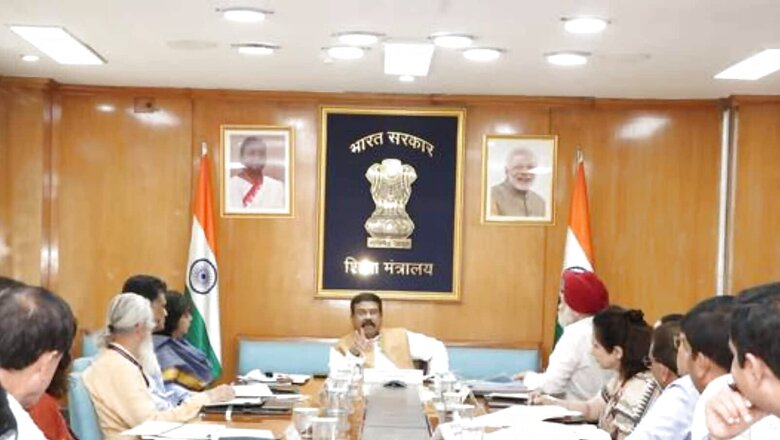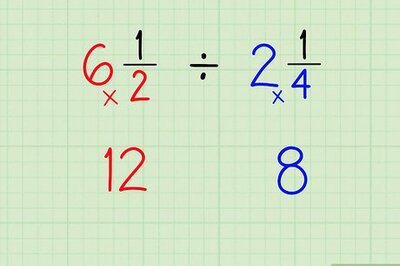
views
Union Education and Skill Development minister Dharmendra Pradhan gave his consent to start the process of public consultation on the National Credit Framework from tomorrow, October 19. As per the National Education Policy (NEP) 2020, the NCF must be developed in four areas including Early Childhood Care and Education (ECCE), teachers, and adult education.
The National Credit Framework aims to enable the integration of academic and vocational domains to ensure flexibility and mobility between the two, it added. “The Government of India had approved the constitution of a High-Level Committee, vide order dated 18th November 2021, to develop a National Credit Accumulation & Transfer Framework for both Vocational and General Education,” states the official press release.
Also read| AICTE Introduces Unified Credit Framework, Students to Get 8 Credits After PhD
The education minister was chairing a high-level meeting with the committee preparing National Credit Framework for School Education, Higher Education and Skilling today. The committee includes secretary of school education, Anita Karwal, secretary of higher education Sanjay Murthy, chairman of NCVET Dr Nirmaljeet Singh Kalsi and senior officials of the education and skill development ministry.
Read| NCERT Removes Guidelines on Inclusion of Transgenders, Non-binary from Website
“As per the perspectives of the NEP 2020, the Committee will develop four National Curriculum Frameworks- i.e., the National Curriculum Framework for School Education, National Curriculum for Early Childhood Care and Education, National Curriculum Framework for Teacher Education and National Curriculum Framework for Adult Education,” the Education Ministry had said earlier. Further, NCERT has decided to reduce the syllabus and textbooks for the academic sessions 2022-23 across all classes. The new textbooks based on National Curriculum Framework are likely to be introduced by NCERT from the academic session 2023-24.
The NCF has five categories including classroom teaching, laboratory and class projects, sports and games, yoga, physical activities, performing arts, music, crafts and bagless days. The third category is all about yearly or half-yearly examinations, class tests, quizzes, and assessments. The fourth and fifth categories include vocational education and training, field visits, project work; and job training, internship, apprenticeship and experiential learning.
Read all the Latest Education News and Breaking News here




















Comments
0 comment